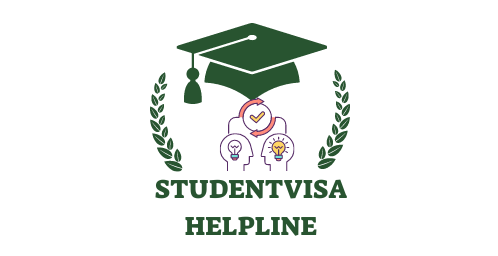
Cultural exchange programs offer individuals the unique opportunity to immerse themselves in new cultures, broaden their horizons, and foster mutual understanding across borders. These programs facilitate the exchange of knowledge, ideas, and experiences, enabling participants to gain invaluable insights into different societies, traditions, and perspectives. Whether it’s a language immersion program, an internship abroad, or a volunteer opportunity, cultural exchange programs create a transformative environment for personal growth, intercultural communication, and global citizenship. Obtaining a student visa is an essential aspect of participating in a cultural exchange program. A student visa serves as the legal authorization to reside, study, and engage in cultural activities in a foreign country. It ensures compliance with immigration laws, safeguards the rights and privileges of participants, and provides access to various resources and opportunities within the host country. Furthermore, a student visa offers protection, such as access to healthcare and legal assistance, and enhances the overall safety and security of individuals during their cultural exchange journey.
Cultural Exchange Programs
Cultural exchange programs refer to structured initiatives that promote cross-cultural understanding, knowledge exchange, and personal development through immersive experiences in different countries. These programs facilitate the exchange of ideas, customs, and perspectives, fostering mutual respect and global awareness. The primary objectives of cultural exchange programs are to cultivate intercultural communication skills, enhance cultural competency, and create lifelong connections between individuals from diverse backgrounds.
Types of cultural exchange programs
Language immersion programs:
Language immersion programs immerse participants in an environment where they can learn and practice a foreign language. These programs often involve attending language classes, living with local host families, and engaging in cultural activities that enhance language proficiency and cultural understanding.
Internship programs:
Internship programs provide participants with the opportunity to gain practical work experience in a professional setting abroad. Participants work alongside professionals in their field of interest, acquiring new skills, expanding their professional networks, and gaining insights into different work cultures.
Volunteer programs:
Volunteer programs allow individuals to contribute their time and skills to various community-based projects or non-profit organizations abroad. Participants engage in meaningful volunteer work, addressing social, environmental, or humanitarian issues while immersing themselves in the local culture and making a positive impact.
Academic exchange programs:
Academic exchange programs facilitate educational opportunities for students, scholars, and researchers. These programs enable participants to study at a foreign educational institution, conduct research, collaborate with peers and professors, and explore different academic disciplines. Academic exchanges foster intellectual growth, intercultural learning, and academic collaboration.
Participating in cultural exchange programs offers numerous benefits to individuals:
- Enhanced cultural understanding and appreciation.
- Development of intercultural communication and adaptability skills.
- Expanded global networks and friendships.
- Increased self-confidence and personal growth.
- Exposure to different perspectives and ways of thinking.
- Acquisition of language skills and cultural competence.
- Improved professional prospects and career opportunities.
- Building empathy and global citizenship.
- Creating lifelong memories and experiences.
Researching Suitable Cultural Exchange Programs
Identifying personal interests and goals:
Before embarking on the journey of researching cultural exchange programs, it is important to first identify personal interests and goals. Consider the desired outcomes, such as language acquisition, professional development, or community service. Reflect on the specific cultures or regions of interest, preferred program duration, and any specific activities or experiences you wish to engage in. By understanding your personal interests and goals, you can narrow down the options and find programs that align with your aspirations.
Researching reputable program providers:
To ensure a positive and meaningful cultural exchange experience, it is crucial to research and select reputable program providers. Start by seeking recommendations from educational institutions, peers, or alumni who have participated in cultural exchange programs. Explore program provider websites, read reviews, and assess their track record, years of operation, and partnerships with reputable organizations. Look for accreditations, affiliations, and industry recognition, as these indicate the provider’s commitment to quality and adherence to ethical standards.
Evaluating program requirements and eligibility criteria:
Once you have identified potential program providers, carefully evaluate the program requirements and eligibility criteria. Review the prerequisites, such as age limits, educational background, language proficiency, and any specific skill sets or experience required. Consider the financial aspects, including program fees, funding opportunities, and the cost of living in the host country. Assess the program’s duration, scheduling flexibility, and any restrictions or obligations during the exchange. By thoroughly evaluating these factors, you can determine if you meet the program requirements and if the program aligns with your expectations and logistical considerations.
Student Visas for Cultural Exchange Programs
A student visa is a legal document or endorsement issued by a country’s immigration authority that allows individuals to enter, reside, and study in that country for a specified period. It is a requirement for participating in cultural exchange programs, as it grants individuals the necessary authorization to engage in educational activities while ensuring compliance with immigration laws and regulations.
Different types of student visas for cultural exchange programs:
1.J-1 visa (United States):
The J-1 visa is a non-immigrant visa specifically designed for exchange visitors participating in cultural exchange programs in the United States. It covers various categories, including au pair, research scholar, intern, trainee, and summer work travel programs.
2.Tier 4 visa (United Kingdom):
The Tier 4 visa is for international students who wish to pursue academic studies in the United Kingdom. It is applicable for cultural exchange programs that involve enrolling in a UK educational institution, such as university courses, language programs, or vocational training.
3.Working Holiday visa (Australia):
The Working Holiday visa, also known as the WHV or subclass 417 visa, allows young adults from eligible countries to work and travel in Australia. It offers an opportunity for cultural exchange by combining work and holiday experiences.
4.Schengen visa (Europe):
The Schengen visa is a short-term visa that allows individuals to travel and stay in the Schengen Area, comprising 26 European countries. It is relevant for cultural exchange programs in Europe that involve visits to multiple countries within the Schengen Area.
Eligibility criteria for student visas
Age requirements:
Student visa eligibility criteria often include minimum and maximum age limits. The specific age requirements vary depending on the country and visa type. For example, some programs may have age restrictions for youth exchange programs or specific age limits for university-level studies.
Educational background:
Many cultural exchange programs require applicants to meet certain educational qualifications. These can range from completing high school education to holding a bachelor’s degree, depending on the program and host country’s requirements.
Language proficiency:
Language proficiency requirements may vary depending on the cultural exchange program and the country’s official language. Some programs may require applicants to demonstrate a certain level of proficiency in the language of instruction or the local language.
Financial capabilities:
Student visas typically require applicants to demonstrate sufficient financial resources to support themselves during their stay in the host country. This may include showing proof of funds for tuition fees, accommodation, living expenses, and return transportation.
Maintaining Visa Compliance during Cultural Exchange Programs
1.Understanding visa terms and conditions:
To maintain visa compliance during cultural exchange programs, it is crucial to thoroughly understand the terms and conditions of your student visa. Familiarize yourself with the duration of stay permitted, any restrictions on employment or additional activities, and the validity period of the visa. Be aware of any travel limitations, such as the requirement to remain within a specific geographic area or country. Understanding these terms and conditions will help you ensure that you are following the guidelines set by the immigration authorities.
2. Complying with program rules and regulations:
In addition to visa requirements, cultural exchange programs often have their own set of rules and regulations that participants must adhere to. These rules may relate to attendance, academic performance, conduct, or specific program activities. It is essential to familiarize yourself with these guidelines and ensure that you comply with them throughout the duration of the program. Failure to adhere to program rules may not only jeopardize your participation but also result in visa violations.
3.Reporting obligations and maintaining legal status:
During your cultural exchange program, it is important to fulfill any reporting obligations as mandated by your visa and program requirements. This may include reporting changes in your contact information, address, or educational institution. Additionally, if your program requires you to engage in any off-campus employment or internships, you must ensure that you comply with any reporting requirements related to such activities. By fulfilling these reporting obligations, you can maintain your legal status and avoid any potential visa violations.
4. Addressing any changes in circumstances or program arrangements:
Circumstances and program arrangements may change during the course of your cultural exchange program. It is crucial to promptly address any changes that may impact your visa status. If there are changes to your program duration, educational institution, or host organization, inform the relevant authorities and seek guidance on the necessary steps to maintain your legal status. Additionally, if you experience any personal changes, such as a change in passport, health condition, or financial situation, make sure to follow the appropriate procedures and notify the relevant parties to ensure compliance with visa requirements.
FAQ
Q1.What is the purpose of a student visa for cultural exchange programs?
The purpose of a student visa for cultural exchange programs is to provide legal authorization for individuals to reside, study, and engage in cultural activities in a foreign country.
Q2.Can I work or earn money while on a student visa?
The ability to work or earn money while on a student visa depends on the specific visa regulations of the host country and the terms of the cultural exchange program.
Q3.What are the age requirements for participating in cultural exchange programs?
Age requirements for participating in cultural exchange programs vary depending on the specific program and host country, with some programs catering to youth participants, while others are open to individuals of all ages.
Q4. How long does it take to obtain a student visa?
The processing time for obtaining a student visa can vary depending on the country, the specific visa type, and individual circumstances, ranging from a few weeks to several months.
Conclusion
Obtaining a student visa is a crucial step for individuals seeking to embark on cultural exchange programs. It provides the legal authorization to reside, study, and immerse oneself in a foreign country, facilitating intercultural learning, personal growth, and global understanding. By understanding the different types of student visas, eligibility criteria, and maintaining visa compliance throughout the program, participants can ensure a successful and enriching cultural exchange experience. Remember, the journey of cultural exchange is not just about exploring new landscapes but also about embracing diverse perspectives, building lifelong connections, and becoming global citizens. So, seize the opportunity, navigate the visa process with diligence, and embark on a transformative adventure that will leave a lasting impact on your life.

